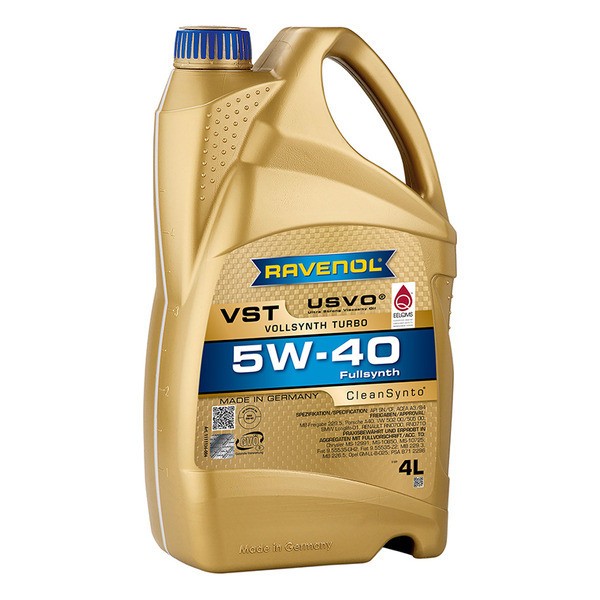
Can I use synthetic motor oil in my new car?
Content
Timely oil changes will help protect the engine from damage. Synthetic motor oil will most likely work and may even be required for your new car.
Changing your oil on time will help protect your engine, and many drivers ask if using synthetic oil in their new car is the right choice. The short answer to this question is yes. If the oil meets the manufacturer's fill standards, you can use it, and many new cars do require synthetic oil.
In your engine, if the synthetic oil meets SAE (Society of Automotive Engineers) standards as recommended by the manufacturer in the owner's manual, it can be used in the crankcase. The same applies to synthetic blended oil.
You can also use regular oil. If it matches the same SAE designation, you can use it in the engine crankcase. Conventional oil is classified as an all-organic lubricant that has not been chemically altered by additional processing. In this case, aftertreatment would be a method used to either create a synthetic oil, or to mix a regular oil with a synthetic oil, creating a blend.
Two types of synthetic oil
There are two types of synthetic oil: full synthetic and blended synthetic. Fully synthetic oil is "manufactured". Take, for example, Castrol EDGE. Castrol EDGE is fully synthetic. Its base is oil, but oil undergoes a chemical process that takes random molecules and makes them homogeneous. This rather complicated process is the sign that determines whether the oil is synthetic. Oils such as Castrol EDGE undergo extensive manipulation to create the uniform molecular structure for which they are known.
Synthetic blends or Synblends are oils that are a mixture of synthetic oil and high quality conventional oil. They have the advantages and characteristics of both synthetic and conventional oils.
Synthetics - hard motor oil.
Synthetic motor oils are tough as nails. They have a homogeneous chemical structure, so they provide much more uniform wear characteristics than conventional motor oils. The homogeneous oil structure also allows synthetic oils to more evenly lubricate modern high temperature engines, often with high compression ratios. Synthetic oils are designed to operate over a wide temperature range.
Take, for example, the requirement for a 5W-20 viscosity grade oil. The number 5 indicates that the oil will operate down to minus 40°C or about minus 15°F. 20 indicates that the oil will operate at temperatures above 80°C or around 110°F. Synthetic oils perform well in winter and in summer heat stress. They retain their viscosity (the ability to remain fluid and lubricated) in cold and hot climates. Please note that there is a "slippage factor" in these ratings. Synthetic oils generally perform well in temperatures ranging from -35°F to 120°F. Synthetics have a much wider range of performance than more traditional oils.
Conventional premium oils that meet the 5W-20 standard work well in the minus 15/110 temperature range. There is even some "sliding". The stumbling block is that over long periods of time when synthetic oils perform well without breaking down, regular oils will start to break down.
Synthetic blends reflect their origins
This is where the synth blends work well. Synthetic blends combine many of the best components of synthetic oils with regular premium oils. Because they are based on regular premium oil, synthetic blends are cheaper than fully synthetic oils. Their chemical composition of synthetic blends reflects their origin.
If you were to look at the chemical composition of a synthetic blended oil, you would find that it is a mixture of standard and conventional molecular chains. Standard or custom-designed molecular chains provide thermal, cold and lubricating properties to the blue blend, while traditional molecular chains allow oil companies to achieve some cost savings.
To some extent, even regular premium oils are "manufacturing" oils. Castrol adds detergents, some lubrication enhancements, anti-paraffin and stabilizing agents to its regular GTX premium motor oils so they can perform at a high level throughout their range.
Conclusion: synthetics will fit in your new car
They have better performance characteristics, which is why automakers often prefer synthetics. Synthetics are made to operate over a wider temperature range. They are also designed to last longer than synthetic blends or regular premium motor oils. These are the most expensive oils. Sinblends are the golden mean in oils. They have many of the characteristics of synthetic materials, but at a lower cost. Conventional premium oils are base oils. They work well, but not as long as synthetics or synthetics.
An oil change every 3,000-7,000 miles will help prevent engine wear and costly replacements. If you need an oil change, AvtoTachki can do it at your home or office using high quality synthetic or conventional Castrol oil.